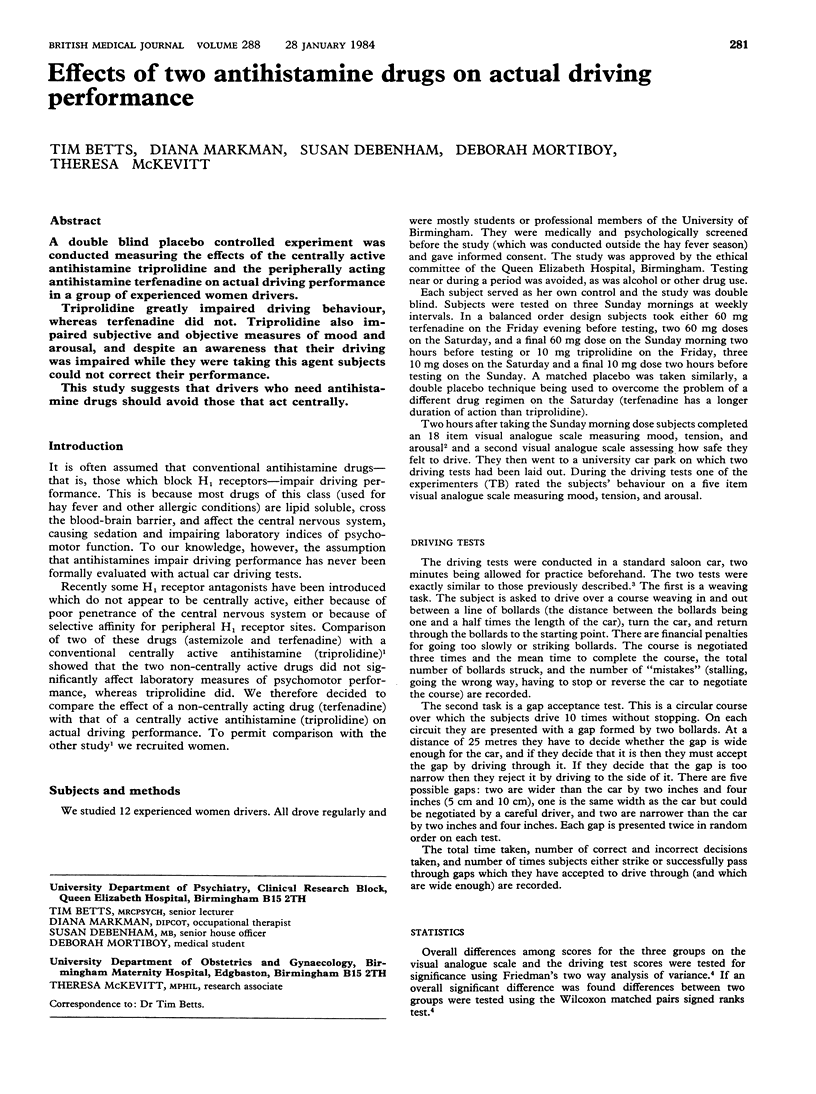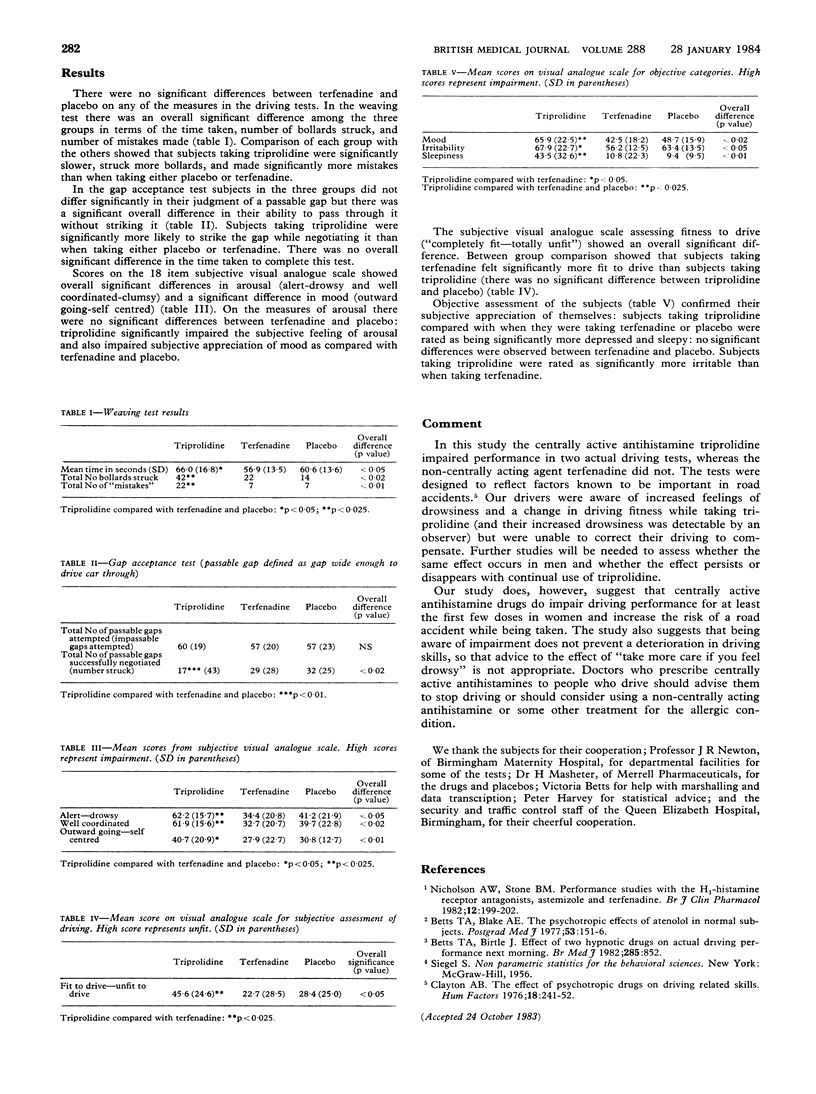Abstract
A double blind placebo controlled experiment was conducted measuring the effects of the centrally active antihistamine triprolidine and the peripherally acting antihistamine terfenadine on actual driving performance in a group of experienced women drivers. Triprolidine greatly impaired driving behaviour, whereas terfenadine did not. Triprolidine also impaired subjective and objective measures of mood and arousal, and despite an awareness that their driving was impaired while they were taking this agent subjects could not correct their performance. This study suggests that drivers who need antihistamine drugs should avoid those that act centrally.
Full text
PDF

Selected References
These references are in PubMed. This may not be the complete list of references from this article.
- Betts T. A., Birtle J. Effect of two hypnotic drugs on actual driving performance next morning. Br Med J (Clin Res Ed) 1982 Sep 25;285(6345):852–852. doi: 10.1136/bmj.285.6345.852. [DOI] [PMC free article] [PubMed] [Google Scholar]
- Betts T. A., Blake A. The psychotropic effects of atenolol in normal subjects preliminary findings. Postgrad Med J. 1977;53 (Suppl 3):151–156. [PubMed] [Google Scholar]
- Clayton A. B. The effects of psychotropic drugs upon driving-related skills. Hum Factors. 1976 Jun;18(3):241–252. doi: 10.1177/001872087601800305. [DOI] [PubMed] [Google Scholar]
- Nicholson A. N., Stone B. M. Performance studies with the H1-histamine receptor antagonists, astemizole and terfenadine. Br J Clin Pharmacol. 1982 Feb;13(2):199–202. doi: 10.1111/j.1365-2125.1982.tb01356.x. [DOI] [PMC free article] [PubMed] [Google Scholar]


